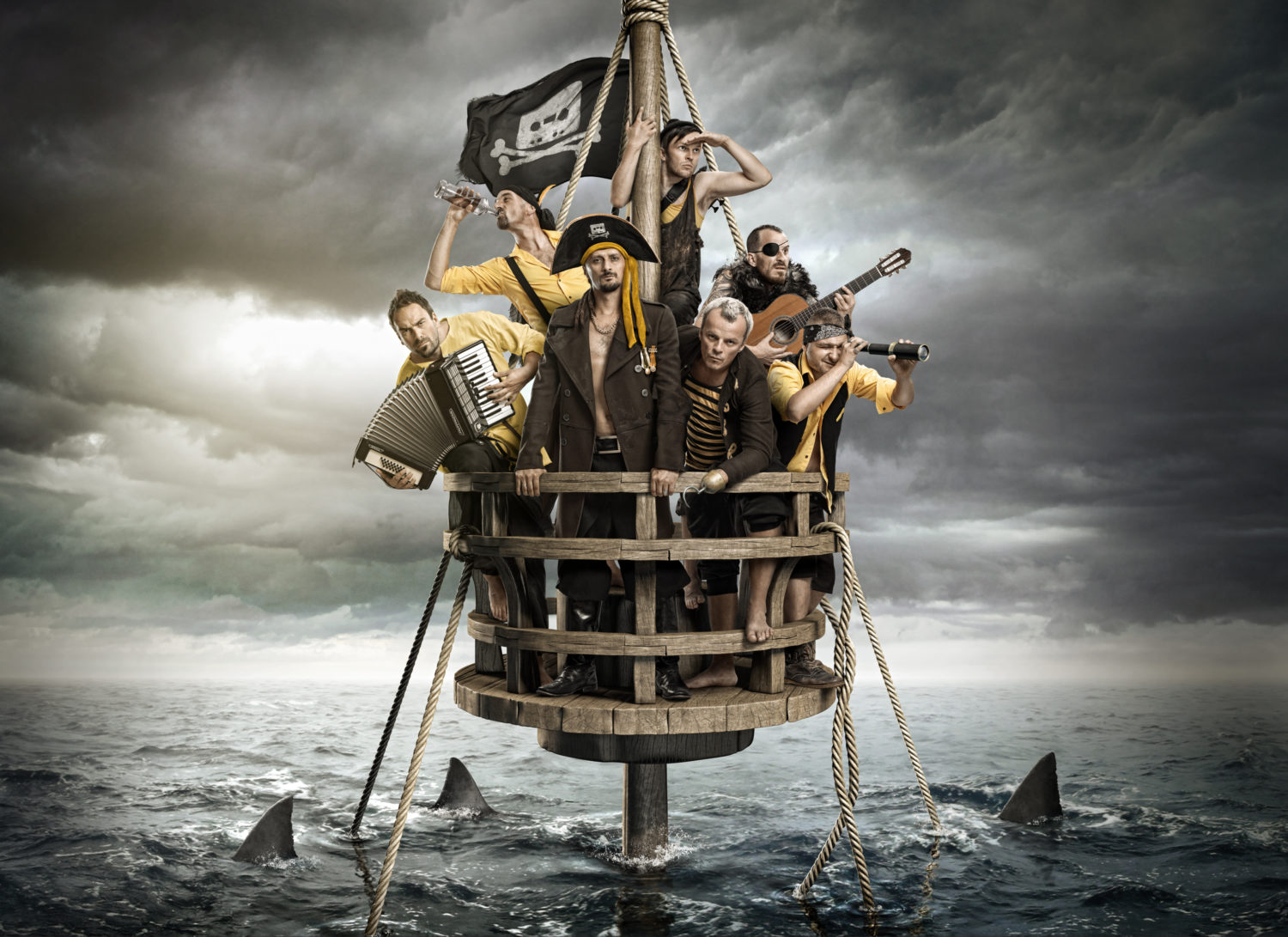
Once upon a time (2003) in a far away land called Bosnia and Herzegovina, a group of friends decided to form a band. But this was no ordinary band, and they did not form under ordinary circumstances. True, along with local Balkan flavors, musical influences came from all over the world: ska, punk, reggae, electronic, hip-hop. Yet, there was no music industry, few concerts, no space for cultural or political expression among the new crop of plugged in youth. In fact, the entire region was reeling from deep moral and economic stagnation. It was from this environment that Dubioza Kolektiv was born, and not quietly, but kicking and screaming, presenting no-go topics front and center, and demanding to be heard-and in doing so, they created a phenomenon. And it has continued in this fashion ever since. Fast forward to 2016, we find band continues stronger than ever, already established itself as among the best and most popular live outfits in Eastern Europe, hallmarked by their most recent musical release “Happy Machine”, perhaps their most provocative album to date.
For a quick rundown of the band’s history, their self-entitled first album “Dubioza Kolektiv” was released in 2004, and was instantly met with an enthusiasm not seen on the Bosnian scene since pre-war times. Next came the ep “Open Wide”, this time featuring dub poet Benjamin Zephaniah and Mush Khan from Fun-da-mental. Then, their second full length cd: “Dubnamite”… and this is when their popularity began to spread beyond borders. By 2008, with the release of “Firma Ilegal”, their bold and uncompromising stand against their nationalist establishment elevated them to fame across the entire Balkan region. One of their most popular songs even made it to the big screen with “Blam”, opening Berlin Golden Bear winner Jasmila Žbanić’s film “Na Putu”. Album number four followed along this logical path as “5 do12”. And, in an open snub to ultra-capitalist music labels and as an expression of commitment to their fans, Dubioza made the album available for free on www.dubioza.org.
It was around this time that Faith No More’s Bill Gould, found the same inspiration from Dubioza Kolektiv. Their fifth album, “Wild, Wild East” was picked up by his label Koolarrow Records and introduced DK on the international stage with worldwide distribution. This was followed by, “Apsurdistan”: released in 2013, was a huge success with more than 300,000 downloads. The video for the featured track “Kažu” was viewed 20 million times on YouTube and their Western Balkans tour sold-out every single venue (and we are talking about large venues here). All of this, along with a relentless approach to touring, has brought DK’s sounds to every corner of Europe.
“Happy Machine” was released in 2016. As always, the subject matter might was confrontational and challenging, but the music is always catchy as hell, now more than ever. Inspiration developed over two years, largely inspired by events that unfolded over that time – from Istanbul’s Gezi park protests (“All Equal”), the jailing of the founders of The Pirate Bay (“Free.mp3”), the Syrian refugee crisis and Europe’s shameful response to it. More kindred spirits in the music world have jumped on board, with guest appearances by Manu Chao, Benji Webbe from Skindred, Roy Paci, Punjabi singer BEE2, Catalan ska-rumba band La Pegatina and trumpet player Dzambo Agusev from Macedonia. Songs are in English, Spanish, Italian and Punjabi.
If you’re looking for macho, money-and-ego driven posturing, you won’t find it here; no MTV “rude boy” gangstas, no strippers or bling, no corporate endorsements from the international fashion industry. Rather, they take on traditional musical forms with their unique perspective, shaped by a war that changed their lives forever, and delivered with a level of positivity that hits you like a blast of fresh air. If you are open to the experience, it could change your life too.